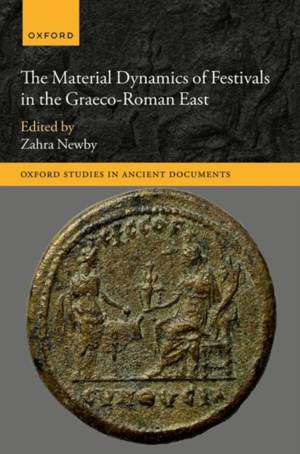
- Afhalen na 1 uur in een winkel met voorraad
- Gratis thuislevering in België vanaf € 30
- Ruim aanbod met 7 miljoen producten
- Afhalen na 1 uur in een winkel met voorraad
- Gratis thuislevering in België vanaf € 30
- Ruim aanbod met 7 miljoen producten
Zoeken
The Material Dynamics of Festivals in the Graeco-Roman East
€ 185,45
+ 370 punten
Omschrijving
The Material Dynamics of Festivals in the Graeco-Roman East explores the various ways in which the experience of civic festivals in the Graeco-Roman East was created and framed by material culture. By the second and third centuries AD, Greek festivals were thriving across the eastern Mediterranean. Much of our knowledge of these festivals, and their associated processions, rituals, banquets, and competitions, comes from material culture-- inscriptions, coins, architecture, and art-works. Yet each of these pieces of material evidence was the result of a conscious act, of what to record, and where and how to record it, with varying patterns discernible across different areas, and in different media. This volume draws attention to the choices made in a variety of different forms of material culture relating to Greek festivals from the Hellenistic to Roman periods, and unpicks the ways in which they encode or forge particular social relationships and power structures, as well as creating senses of community or communication between different groups. These helped to fix ephemeral events into public memory, to present particular views of their significance for the wider community, and to frame the experience of their participants.
Specificaties
Betrokkenen
- Uitgeverij:
Inhoud
- Aantal bladzijden:
- 370
- Taal:
- Engels
- Reeks:
Eigenschappen
- Productcode (EAN):
- 9780192868794
- Verschijningsdatum:
- 18/01/2024
- Uitvoering:
- Hardcover
- Formaat:
- Genaaid
- Afmetingen:
- 165 mm x 229 mm
- Gewicht:
- 771 g

Alleen bij Standaard Boekhandel
+ 370 punten op je klantenkaart van Standaard Boekhandel
Beoordelingen
We publiceren alleen reviews die voldoen aan de voorwaarden voor reviews. Bekijk onze voorwaarden voor reviews.






